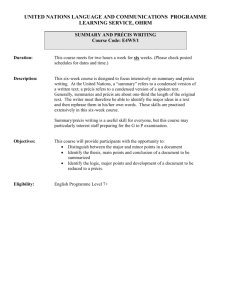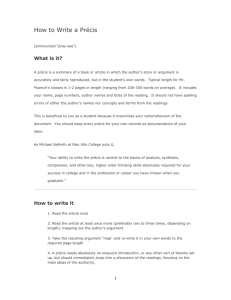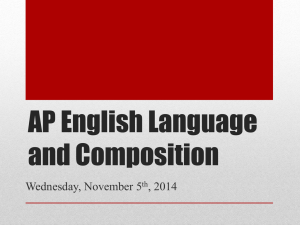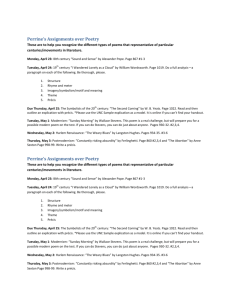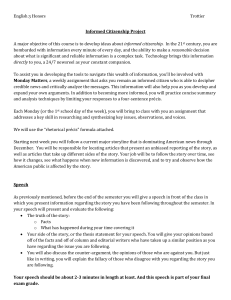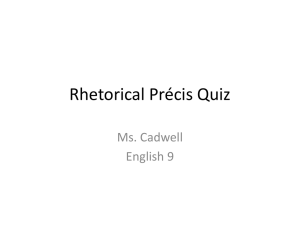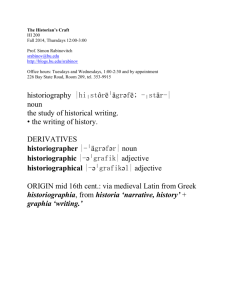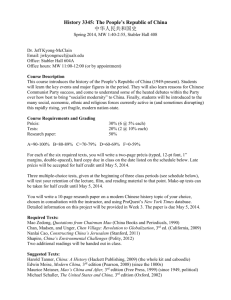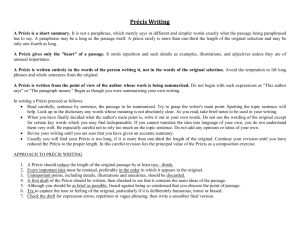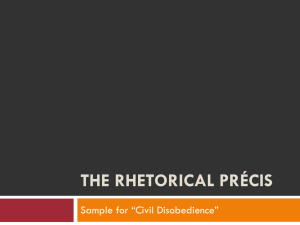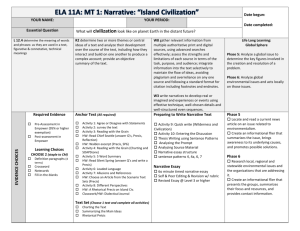SEX, LOVE, & GLOBALIZATION
advertisement
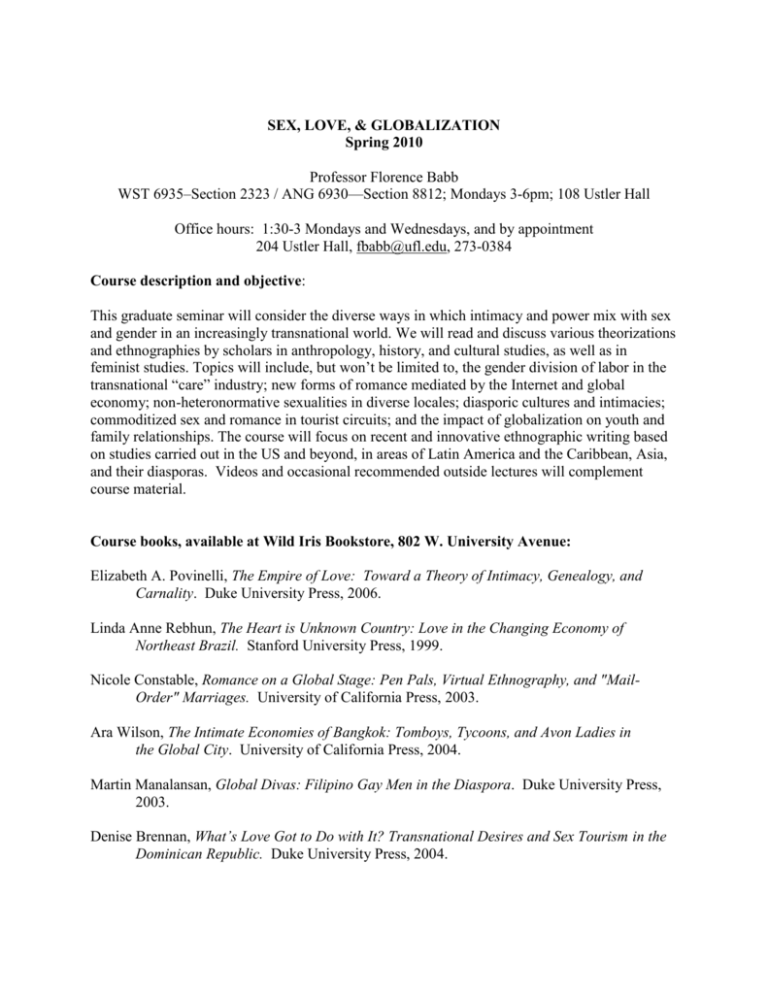
SEX, LOVE, & GLOBALIZATION Spring 2010 Professor Florence Babb WST 6935–Section 2323 / ANG 6930—Section 8812; Mondays 3-6pm; 108 Ustler Hall Office hours: 1:30-3 Mondays and Wednesdays, and by appointment 204 Ustler Hall, fbabb@ufl.edu, 273-0384 Course description and objective: This graduate seminar will consider the diverse ways in which intimacy and power mix with sex and gender in an increasingly transnational world. We will read and discuss various theorizations and ethnographies by scholars in anthropology, history, and cultural studies, as well as in feminist studies. Topics will include, but won’t be limited to, the gender division of labor in the transnational “care” industry; new forms of romance mediated by the Internet and global economy; non-heteronormative sexualities in diverse locales; diasporic cultures and intimacies; commoditized sex and romance in tourist circuits; and the impact of globalization on youth and family relationships. The course will focus on recent and innovative ethnographic writing based on studies carried out in the US and beyond, in areas of Latin America and the Caribbean, Asia, and their diasporas. Videos and occasional recommended outside lectures will complement course material. Course books, available at Wild Iris Bookstore, 802 W. University Avenue: Elizabeth A. Povinelli, The Empire of Love: Toward a Theory of Intimacy, Genealogy, and Carnality. Duke University Press, 2006. Linda Anne Rebhun, The Heart is Unknown Country: Love in the Changing Economy of Northeast Brazil. Stanford University Press, 1999. Nicole Constable, Romance on a Global Stage: Pen Pals, Virtual Ethnography, and "MailOrder" Marriages. University of California Press, 2003. Ara Wilson, The Intimate Economies of Bangkok: Tomboys, Tycoons, and Avon Ladies in the Global City. University of California Press, 2004. Martin Manalansan, Global Divas: Filipino Gay Men in the Diaspora. Duke University Press, 2003. Denise Brennan, What’s Love Got to Do with It? Transnational Desires and Sex Tourism in the Dominican Republic. Duke University Press, 2004. 2 Course requirements and policies: Participation Because the course meets just once each week, full attendance in all classes is essential. Students are expected to come to class having done the reading and ready to participate in discussion. Everyone will have an opportunity to play a part in facilitating the weekly discussion, which includes sending out questions to the class by the day before we meet and then guiding the class through the discussion. [20% of course grade] Précis A 2-3pp double-spaced précis (graded on a 20-point scale) will be due on those dates when we finish reading a book, to ensure thoughtful attention to the reading. Your précis should begin with a brief summation of your view of the work’s contribution (strengths and weaknesses) and then you may go on to identify particular points of interest in relation to the course. Be sure to refer to places in the text with proper citation of page numbers and strive for clarity of presentation. [30% of course grade] Final Paper There will be a course paper of approximately 20-25 double-spaced pages based on additional reading due at the end of the semester. I will expect to receive proposals for these papers (at the latest) by March 27, including short bibliographies of material to be referenced. These papers may draw on multiple works in order to support a specific topic of relevance to the course, or they may take the form of a review essay on a theme appropriate to the course. Everyone will have an opportunity to give an oral presentation of their subject matter during the final weeks of the semester. [50% of course grade] Academic Honesty The University of Florida’s honor code requires all students to be honest in their academic work. University policies on cheating, plagiarism, and related issues are available at: http://www.dso.ufl.edu/judicial/procedures/academicguide.html Accommodations Students requesting classroom accommodation must first register with the Dean of Students Office. The Dean of Students Office will provide documentation to the student who must then provide this documentation to me when requesting accommodation. 3 Course readings: January 11 Introduction to the course Video, “Chain of Love” (dir.: Marije Meerman, 2001, 50 min.) January 18 MLK Day—no class Read from The Empire of Love January25 The Empire of Love, to end (précis due) February 1 The Heart is Unknown Country, to p.107 February 8 The Heart is Unknown Country, to end (précis due) February 15 Romance on a Global Stage, to p.115 February 22 Romance on a Global Stage, to end (précis due) Video, “In the Name of Love” (dir.: Shannon O’Rourke, 2003, 58 min.) March 1 The Intimate Economies of Bangkok, to p.101 March 8 Spring break March 15 The Intimate Economies of Bangkok, to end (précis due) Video clip, “Beautiful Boxer” (dir.: Ekachai Uekrongtahm, 2004, 113 min.) March 22 Global Divas, to p.88 (final paper proposals and bibliography due) March 29 Global Divas, to end (précis due) April 5 Read from What’s Love Got to Do with It?, to p.115 Video clip, “Heading South” (dir.: Laurent Cantet, 2005, 105 min.) April 12 What’s Love Got to Do with It?, to end (précis due) April 19 Presentation of projects (last class) April 26 Final papers due
